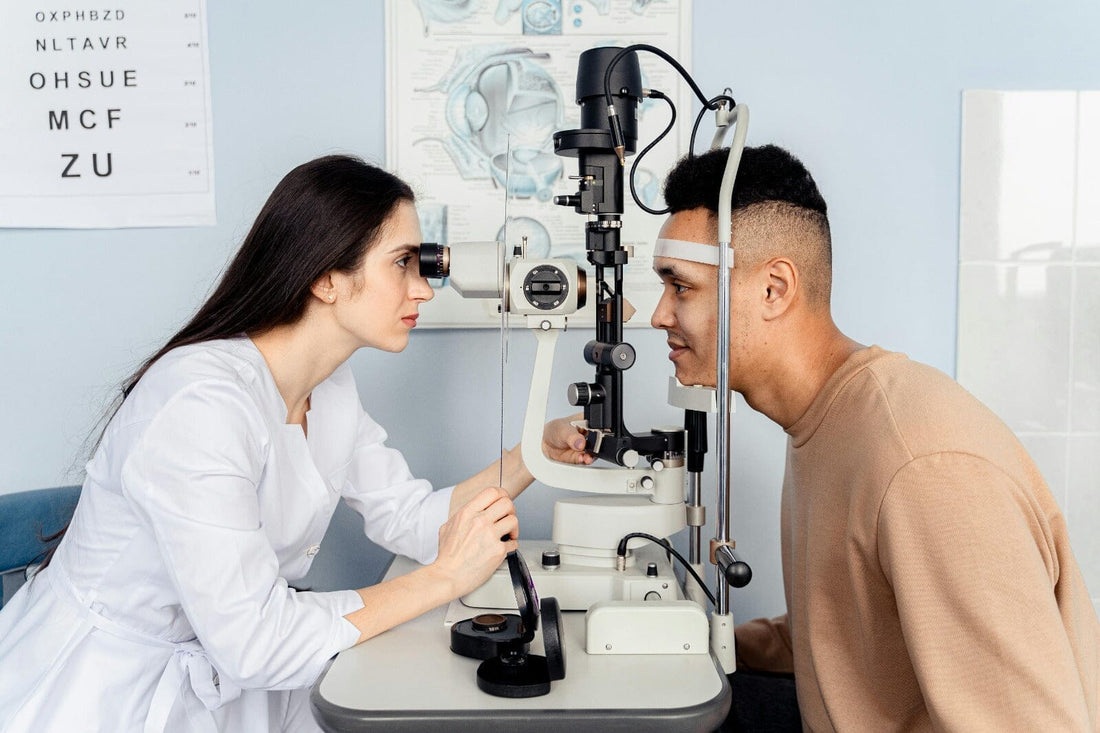
Why Regular Eye Exams Matter: Celebrate National Eye Exam Month for Clearer Vision
Share

It's time to celebrate National Eye Exam Month!
This annual observance is a crucial reminder of the importance of regular eye exams in maintaining good eye health and detecting potential issues early. Whether you wear glasses or contacts, or you've never experienced vision problems, scheduling a comprehensive eye exam is a proactive step toward preserving your vision and overall health.
Why Are Regular Eye Exams Important?

- Early Detection of Eye Conditions
Many eye conditions, such as glaucoma, macular degeneration, and diabetic retinopathy, develop gradually without obvious symptoms. Regular eye exams allow optometrists to detect these conditions early, potentially preventing vision loss through timely intervention.
- Correction of Vision Problems
Vision changes can occur so gradually that you might not notice them until they significantly impact your daily activities. An eye exam can determine if you need glasses or contact lenses or if your current prescription needs updating, ensuring you see clearly and comfortably.
- Monitoring Overall Health
Your eyes are windows to your overall health. Eye exams can reveal signs of systemic conditions like diabetes, high blood pressure, and high cholesterol. Detecting these issues during an eye exam can prompt you to seek appropriate medical care, safeguarding your general well-being.
What to Expect During an Eye Exam

A comprehensive eye exam is more than just a vision test. Here's what you can expect:
- Medical History Review: Your optometrist will ask about your medical history, including any vision problems, medications, and family history of eye conditions.
- Visual Acuity Test: This measures how well you see at various distances.
- Refraction Assessment: Determines your exact prescription for glasses or contact lenses.
- Eye Health Evaluation: Using special instruments, your optometrist will examine the internal and external structures of your eyes.
- Additional Tests: Depending on your age, health, and risk factors, additional tests like retinal imaging or visual field testing may be performed.
Tips for Maintaining Good Eye Health

- Follow the 20-20-20 Rule: Every 20 minutes, take a 20-second break and look at something 20 feet away to reduce eye strain.
- Wear Sunglasses: Protect your eyes from harmful UV rays by wearing sunglasses with UV protection.
- Maintain a Healthy Diet: Foods rich in omega-3 fatty acids, lutein, zinc, and vitamins C and E can help ward off age-related vision.
